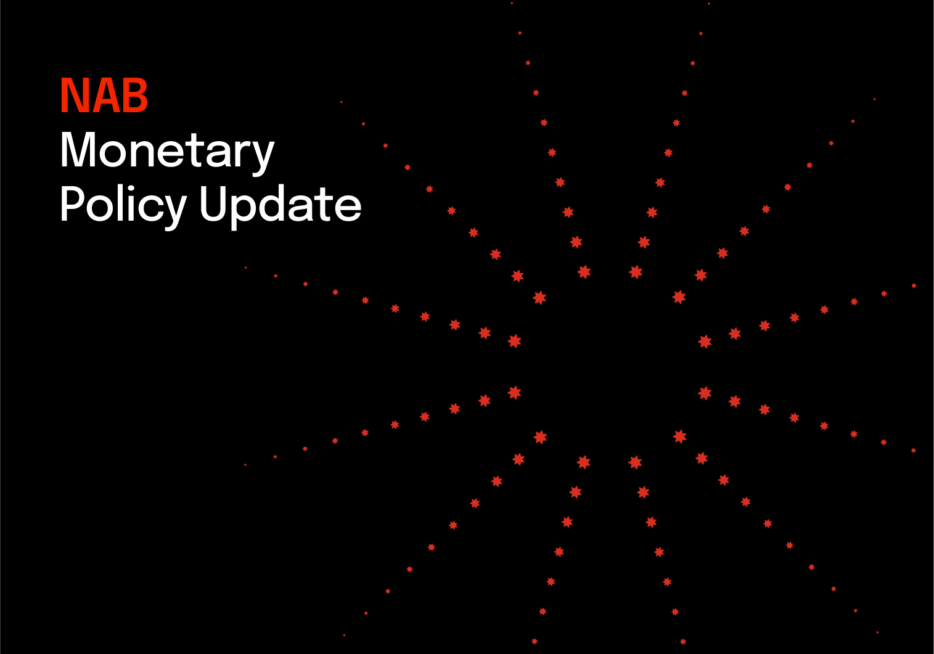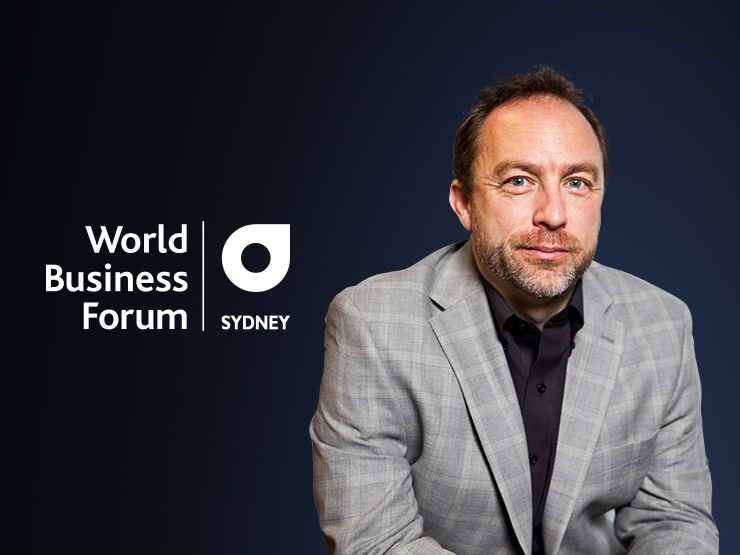RBA surprises with a hold, NAB still sees cuts in August, November and now February


Insight
Wikipedia founder Jimmy Wales on why he’s good at failure, the need to protect information integrity and what he’s about to launch next.

US entrepreneur Jimmy Wales is a global internet pioneer and the founder of Wikipedia. Here he details the values Wikipedia is based on, the failures he’s survived and the new global project he is just weeks away from launching.
The original vision for Wikipedia was imagining a world where every person on the planet is given free access to information. You’re allowed to copy it, redistribute it, modify it. When people contribute to Wikipedia, they’re contributing to a storehouse of knowledge.
We’ve been around for 16 years now and every month are accessed by around 1 billion devices. We’re in 284 different languages and are focused on Wikipedia in the developing world. We’re different – we’re a charity focused on bringing knowledge to everyone and are principled about that.
Censorship is a problem but we have made some progress. And we will never compromise on the issue of censorship. We moved from being unencrypted to being encrypted, which means filtering out for censorship purposes is not possible. You have to take all of Wikipedia or none.
It’s important to stand solid. I am critical of internet companies that participate in censorship. It is a complicated problem because they have to do business in certain countries, but we are different. We are a charity that is focused on bringing free knowledge to everyone
Wikipedia is part of the infrastructure of the world. We’re now 16 years old so, if you’re entering university at 18 years old, you’re a ‘Wikipedia generation’ because it’s been ubiquitous through your life. This imposes a heavy burden on us – we have to take our responsibility seriously to get everything right and eliminate errors.
One of the ideas gaining a lot of coverage today is around a post-truth and post-fact world. It makes me go crazy. The real community, the community of Wikipedia, is important to understand. A lot of people think it’s 100 million people writing. But we actually have just 80,000 volunteers, people who are regularly updating. And the dedicated community is just 3000 to 5000 people. They enforce the rules, make up the rules, are always improving Wikipedia projects.
One of the core concepts that’s important to me is failure. I like to talk about failure and how I’m really good at it.
Early in my career, I was a futures and options trader. I had a brilliant business idea: I noticed people were using inefficient ways to get food at work. I thought, ‘All of this could go online’. Today that’s an obvious thing but what was the result then? Failure. In 1996, restaurant owners looked at me like I was from Mars. I failed!
Another idea of mine was a search engine based on pay-per-click advertising. I set up a search engine but, again, failure. Spammers took over the site within months; it was a disaster. The next idea I had was for a free encyclopedia written by experts. The result? Failure. I spent about $250,000 on the first 12 articles. The problem was I didn’t understand community, how to build an online community.
Then, in late 2001, I had a really dumb idea. A free encylopedia with no advertising and no sane business plan. The result? Success. Wikipedia is now the number five website in the world and is changing the face of knowledge everywhere.
WikiTribune is my next project. The idea is a hybrid model of paid professional journalists and community members working side by side. The aim is to protect the integrity of information, with journalists and the community working together, supported by readers.
In launching WikiTribune, rather than going to Silicon Valley for investment, we launched a crowdfunding campaign that has now given us enough money to hire technical people and journalists. The software’s not ready but we’ll launch quickly and, in about two or three weeks, will do a private beta launch. We need to iterate quickly.
It’s time to rethink the gatekeeper. WikiTribune takes professional journalism and incorporates the idea that volunteers will protect the integrity of the information. Supported not by advertisers but by readers who will be monthly supporters, there is no pay wall and anyone can flag an article for review.
Decline in trust in the media today is enormous. Edelman’s annual trust in the media study, Trust Barometer, this year showed we’re at an all-time low in trust in the media. When you have a lack of trust in factual information you get disruption in politics, so that no one knows who to believe or trust. That’s something I hope I can do something about.
© National Australia Bank Limited. ABN 12 004 044 937 AFSL and Australian Credit Licence 230686.